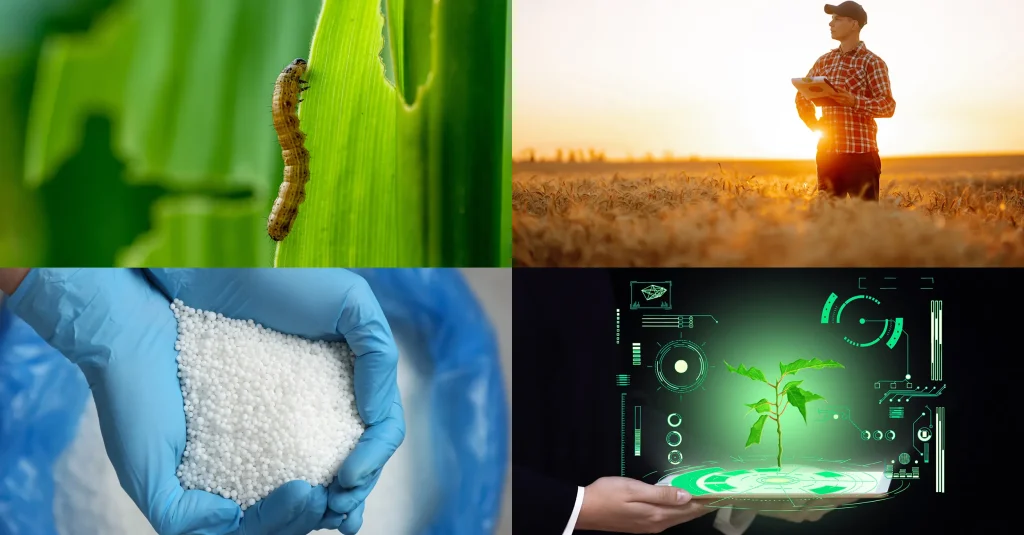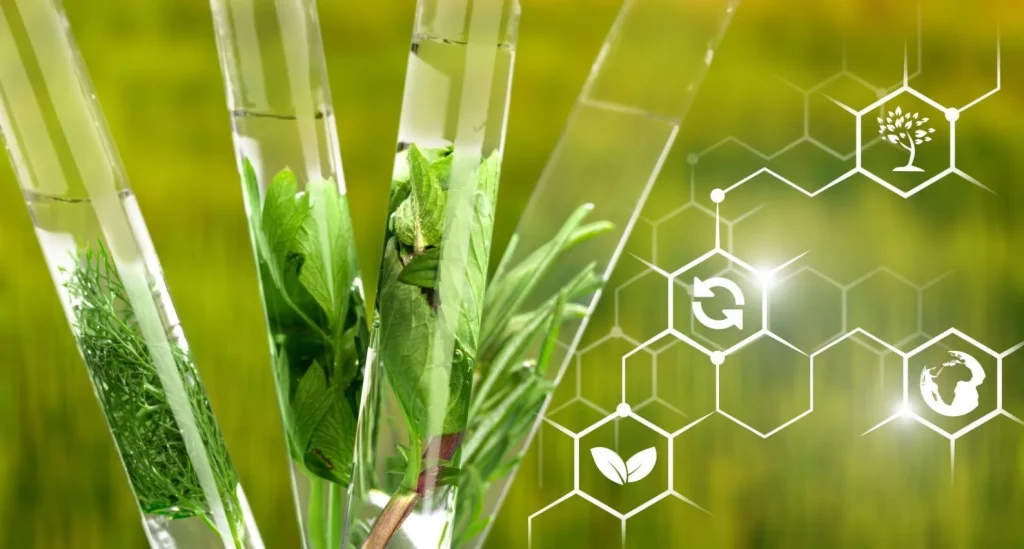肥料、殺虫剤、除草剤、殺菌剤などの農薬は、作物を保護し、収穫量を向上させることで、現代農業において極めて重要な役割を果たしています。世界的な食料需要の増加に伴い、より効果的で環境に優しい農薬製剤の必要性も高まっています。これらの製品の製造において重要な技術ステップは、粉末をミクロンレベルで粉砕・分級することであり、粒子サイズと純度は製品の性能と安全性に直接影響を及ぼします。空気 ジェットミリング (流体エネルギー粉砕)は、農薬分野で超微粉末を実現するための最先端の技術です。

農薬にとって超微粉砕が不可欠な理由
農薬粉末を微粒化することで、生物学的利用能と効率が向上します。粒子径が小さいほど比表面積が大きくなり、圃場で散布した際に溶解が速くなり、分散性が向上します。粒子径を正確に制御することで、製剤の安定性と粘稠性が向上します。これは、今日広く使用されている複雑な多成分製剤にとって非常に重要です。さらに、超微粒化により有効成分の投与量を低減できるため、効果を維持しながら環境への影響を軽減できます。

なぜエアジェットミリングなのか?
エアジェットミル(流体エネルギーミル)は、農薬分野における超微粉製造の先進技術です。従来の機械式ミルとは異なり、エアジェットミルは高速圧縮空気ジェットを使用し、粉砕室内で粒子を機械的接触なしに衝突・破砕します。これにより、以下の大きな利点が得られます。
1ミクロン以下の微細粒子を、狭い粒度分布で実現します。粉砕媒体が材料に接触しないため、汚染リスクを排除します。農薬によく見られる、熱に敏感で硬く脆い材料にも適しています。ラボ試験からフル生産体制まで、柔軟性と拡張性を備えています。
重要な考慮事項t農薬のエアジェット粉砕におけるイオン
粉砕プロセスを最適化するには、いくつかの重要な要素を考慮する必要があります。
素材の水分: 粉末は、粉砕効率を低下させる可能性のある凝集や目詰まりを防ぐために、非常に乾燥している必要があります (通常、水分 <1%)。
研磨性と硬度: 硬質または研磨性の材料の場合、耐久性を確保するために、耐摩耗性のライニングとコンポーネントを備えたエアジェットミルが必要です。
静電気の影響: 一部の粉末は粉砕中に静電気を発生するため、安全を確保するには静電気防止装置の設計と適切な接地が不可欠です。
プロセス最適化: 送り速度、研削圧力、分級ホイールの速度などの粉砕パラメータは、材料の特性と目標粒子サイズに基づいて調整する必要があります。
封じ込めと安全性: 農薬には潜在的な毒性や爆発性があるため、集塵および作業者保護機構を備えた密閉されたシステムが必須です。

利点と限界
エアジェットミリングは、高精度な粒子径を保証し、繊細な農薬製剤に不可欠な粉末純度を維持します。粒子径分布の微調整が可能になり、バッチの一貫性と最終製品の有効性が向上します。また、この技術は、閉ループの粉砕・分級サイクルを可能にすることで、製品廃棄物を削減します。
しかし、この技術は従来の製粉所に比べてエネルギー消費量が多く、運用も複雑です。設備コストは比較的高く、熟練した操作とメンテナンスが必要です。また、騒音レベルや水分への敏感性を考慮すると、適切な設備設計とプロセス管理も必要です。
業界の洞察とデータサポート
世界の農薬市場は2024年に約2,980億米ドルと評価され、2033年には約3,950億米ドルに達し、年平均成長率(CAGR)は約3.2%で成長すると予想されています。微粉化技術と製剤技術の革新により、生産者は厳格化する規制基準を満たしながら、持続可能な形でより高い収量を実現することが可能になります。研究によると、粒子径を10ミクロン以下にすることで、有効成分の生物学的利用能が向上し、必要な投与量を最大30%削減できることが示されており、精密粉砕技術の重要性が強調されています。
高度なエアジェット粉砕システムに移行することで、農薬会社は製品の一貫性を高め、生産サイクルを短縮し、環境および安全規制を遵守できるようになります。
結論
製品の性能、持続可能性、規制遵守に対する要求の高まりに直面している農薬メーカーにとって、エアジェットミリングは、超微細で汚染のない粉末製造のための最先端のソリューションを提供します。
EPIC パウダーマシナリー
EPIC パウダーマシナリー 要求の厳しい農薬原料に特化したエアジェット粉砕システムの設計において、20年以上の専門知識を有しています。当社は包括的な試験サービスを提供しており、お客様が独自の農薬原料に最適な粉砕パラメータを特定し、パイロット試験から生産段階へのスケールアップを成功に導くお手伝いをいたします。
EPICにお問い合わせください 今すぐ Powder Machinery にお問い合わせいただき、当社のカスタム エア ジェット ミリング ソリューションが粉体生産をいかに向上できるかをご確認ください。